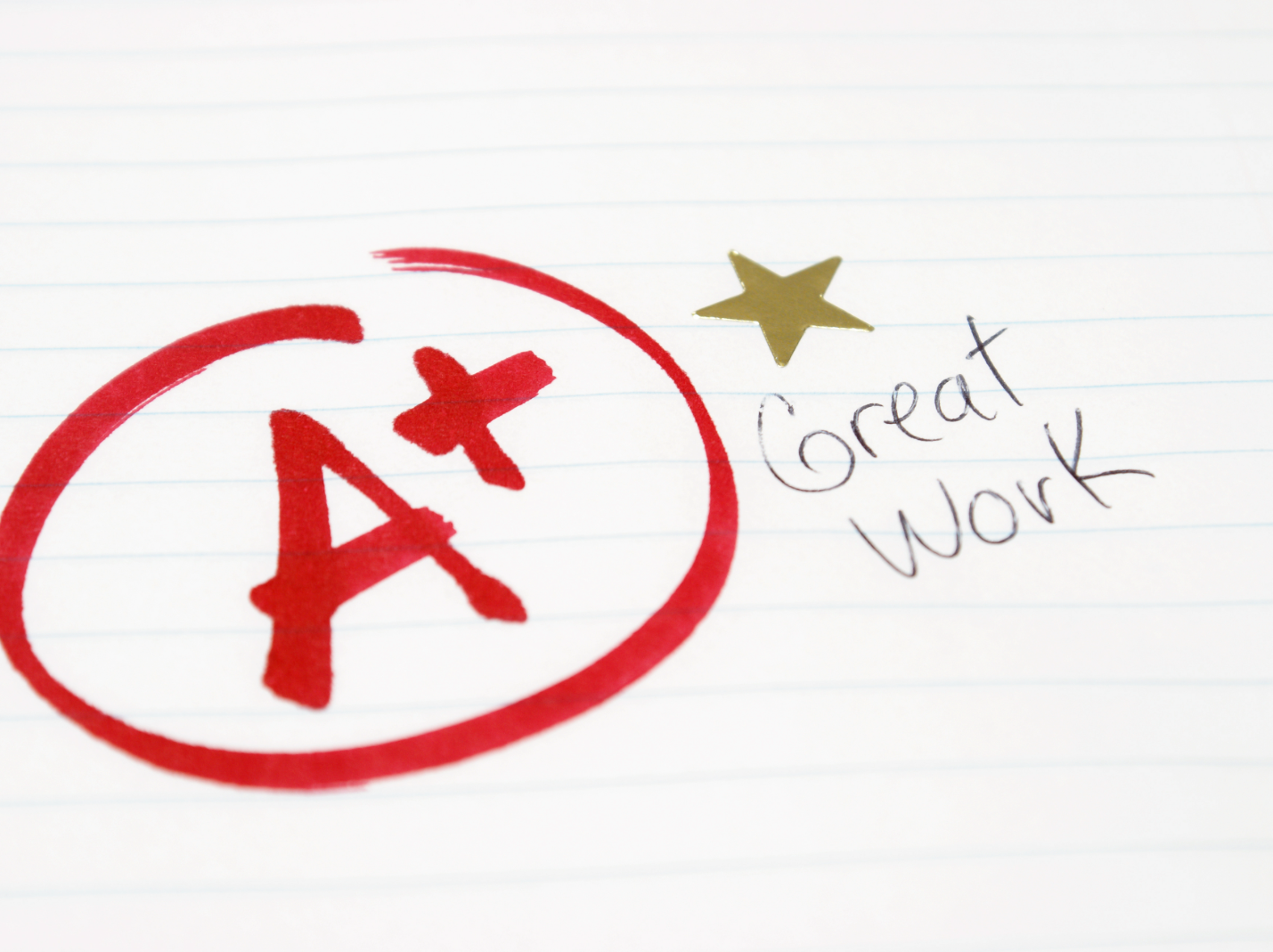
In Spring 2024, I took a required English course expecting to learn how to write clearly, build arguments, and think critically. Instead, I learned something else: the path to an A ran straight through ideological conformity. The professor—whose name I’ll leave unmentioned out of respect—began every session with a mandatory moment of silence for what […]
Read More
The most shocking thing about the Harvard cheating scandal was not that 125 students out of a class of 279 were found to have “committed acts of academic dishonesty” on an exam last spring, or even that the exam was for a course that was supposed to be an easy mark. It was that it […]
Read More
It’s no secret that most high school graduates are unprepared for college. Every year, 1.7 million first-year college students are enrolled in remedial classes at a cost of about $3 billion annually, the Associated Press recently reported. Scores on the 2011 ACT college entrance exam showed that only 1 in 4 high school graduates […]
Read More
Although high school students applying to colleges invariably rely on college ranking guides as a primary source of information, these guides are often misleading and, in most cases, counterproductive. Frederick Hess and Faryn Hochleitner at the American Enterprise Institute (College Rankings Inflation: Are You Overpaying for Prestige) AEI, 5/24/12 contend “the ranks of the top […]
Read More
Do college professors work harder than other upper-middle-class Americans, or less hard? Former college president David C. Levy’s March 23 op-ed in the Washington Post, arguing that faculty members ought to increase their classroom time by up to 67 percent, ignited a fierce debate in academe. Levy’s op-ed alone generated 1,352 comments online, mostly from […]
Read More
Books above a sixth-grade reading level, for sure. According to Renaissance Learning’s 2012 report on the books read by almost 400,000 students in grades 9-12 in 2010-2011, the average reading level of the top 40 books is a little above fifth grade (5.3 to be exact). While 27 of the 40 books are UG (upper […]
Read More
As a dean at a rural community college in Illinois, I recently served as a judge for a history fair for seventh and eighth graders at a local school–an assignment that involved a real surprise. When the Social Studies teacher gave me the grading rubric, I saw only three categories: Superior, Excellent, and Good. I […]
Read More
Cross-posted from National Association of Scholars. Cross-posted from National Association of Scholars. Fall 2011 has seen some major milestones for the SAT/ACT optional movement. DePaul University, for instance, initiated its first admission cycle sans test requirement. Clark University announced last month that it will offer test-optional admissions for the incoming class of 2013. In his […]
Read More
If you go this web site, you can search the course roster at the University of Wisconsin and find out what grades were given each semester for the last several years. In Spring 2011, the average grade for 792 students in Intermediate Organic Chemistry was 2.8, a B-, while in Introduction to Education, 50 students […]
Read More
A well-publicized cheating scandal at Great Neck High School featured a criminal entrepreneur taking SAT tests for college-bound high school students. My colleagues in the Academy tell me cheating is endemic with papers written by “service” organizations and plagiarism a national contagion. Teachers are routinely engaged in “scrubbing” various tests in an effort to increase […]
Read More
On Inside Higher Ed today “MathProf,” an anonymous poster, raised an original objection to multiple-choice tests: they are packed with lies. He said one student “pointed out to me that multiple-choice tests are inherently deceptive, featuring wrong answers deliberately designed to appear plausible. Is this really the skill we want to teach and reward: not knowledge, […]
Read More
High school students taking advanced placement courses in economics are being shortchanged. In 2010 the College Board and Educational Testing Service (ETS) administered 134,747 Advanced Placement (AP) microeconomics and macroeconomics exams to high school students. A new study systematically reviews the content of AP Economics. AP Economics gives ample attention to market failure, but no […]
Read More
One of my colleagues here at the University of Texas–Austin, the economist Daniel Hamermesh, recently complained in his New York Times “Freakonomics” blog about the common practice in many departments of assigning no final exams. I wish he had applied his own craft to this situation. The lack of final exams is merely one symptom […]
Read More
Trying to rank hundreds, if not thousands of colleges is obviously foolish, but this foolishness has consequences beyond supplying iffy advice to clueless shoppers. To the extent that potential enrollees take ratings seriously, institutions may be tempted to game the system and these tricks may well undermine education. To use Malcolm Gladwell’s illustration from Car […]
Read More
As the author of a college guide that tries to help college-going students identify schools that would be a good “match” for them as individuals, I’ve always had three main gripes with the U.S. News & World Report rankings. First, you can’t quantify the really important factors that go into selecting the right college, such […]
Read More
The U.S. News & World Report rankings of America’s “best” colleges and universities amount to nothing more than an annual ritual, a predictable coronation of entrenched wealth and power. Even more importantly, for aspiring students and parents who hope to transcend their present class status, the yearly “guide” serves as the handmaiden to the elite. […]
Read More
The sniping has begun about Richard Arum and Josipa Roksa’s great new book Academically Adrift. Predictably, people are saying the test instruments used (especially the Collegiate Learning Assessment or CLA but also the National Survey of Student Engagement or NSSE) are imperfect, they look at only a small number of relatively anonymous schools, etc. These […]
Read More
The big news in higher education last week was the issuance of findings from Academically Adrift: Limited Learning on College Campuses, a scientific study of how much college students progress intellectually during their four years on campus. Two researchers, Richard Arum, professor of sociology and education at New York University and director of the Education […]
Read More
I can’t recall a book on higher education that arrived with so much buzz, and drew so much commentary in the first two days after publication. The book is Academically Adrift: Limited Learning on College Campuses, by Richard Arum, and Josipa Roksa (University of Chicago Press). Arum is a professor of sociology and education at […]
Read More
In every Marx Bros. movie, there occurs a moment when Harpo works himself up to a frenzy, hyperventilating, jumping up and down and crossing his eyes. These interludes never fail to beguile the viewer, even though they have nothing to do with the plot. I was reminded of these Harpovian shenanigans when I came across […]
Read More
On average black students do much worse on the SAT and many other standardized tests than whites. While encouraging progress was made in the 1970s and early 1980s in improving black SAT scores and reducing the black/white test score gap, progress in this direction came to a halt by the early 1990s, and today the […]
Read More
Almost every morning, after taking a shower, I get on the scale to see if I have lost some of the extra weight that I do not want or need. I have tried many ways of shedding the pounds, with diet and exercise at the top of the list. The pounds refuse to disappear. After […]
Read More
Here’s how easy it is to find out whether Adam Wheeler, the 23-year-old who allegedly faked his way into Harvard, was the preternaturally accomplished young scholar he said he was: Google. That’s how I spent a productive half-hour after I found Wheeler’s resume posted on the New Republic‘s website. Wheeler had submitted the resume when […]
Read More
In 1983 U.S. News & World Report came up with what Ben Wildavsky, a former education editor at the magazine, described as “a journalistic parlor game.” The magazine had just conducted a successful survey of U.S. leaders to identify the most influential Americans. Why not, the editors asked, use a similar approach to identify the […]
Read More
In recent years the stakes for entrance to the nation’s most prestigious colleges and universities have risen to absurd heights, with students (or, their families) not only now paying significant sums for private school tuitions (or the entry cost into good school districts, namely expensive housing), SAT training, and coaching for application writing, but increasingly […]
Read More
One of the hottest debates roiling American campuses today is whether the SAT and other standardized tests should continue to play a dominant role as a college admissions criterion. The main point of contention in this debate is whether the SAT or equivalent scores accurately gauge college preparedness, and whether they are valid predictors of […]
Read More
“Scores Stable as More Minorities Take SAT” said the headline on today’s Washington Post story reporting the annual account of average SAT scores. Good news, right? No, just bad news presented in happy talk. “Class of ’08 Fails to Lift SAT Scores,” was the Wall Street Journal’s more accurate version of the story, which raised […]
Read More
The Chronicle of Higher Education’s almanac, out in the journal’s August 29th issue, drenches readers in campus statistics. Women account for 57.3 % of students enrolled at American colleges and universities (10,184,100, compared with 7,574,800 for men). Slightly more than 59 percent of women graduate. The figure for men is 53 percent. Freshman males are […]
Read More
If I ran the campus I’d start out anew I’d make a few changes That’s just what I’d do Here’s a simple suggestion (Avoiding all fads) I’d have some professors Who teach undergrads I hear you all snicker I hear you all scoff But I’ve got to believe That many a prof Would thrill to […]
Read More
Steven Aird, who taught biology, was denied tenure and dismissed by Norfolk State University in Virginia for failing too many students. Though Aird isn’t talking publicly about the case, Inside Higher Ed reports that university documents he released make clear that his pattern of giving low and failing marks was the sole reason he was […]
Read More